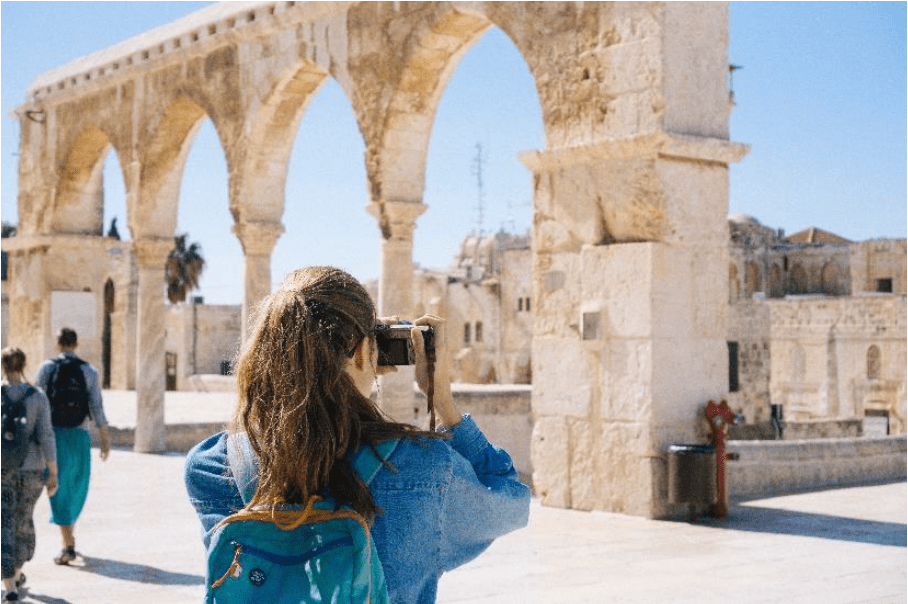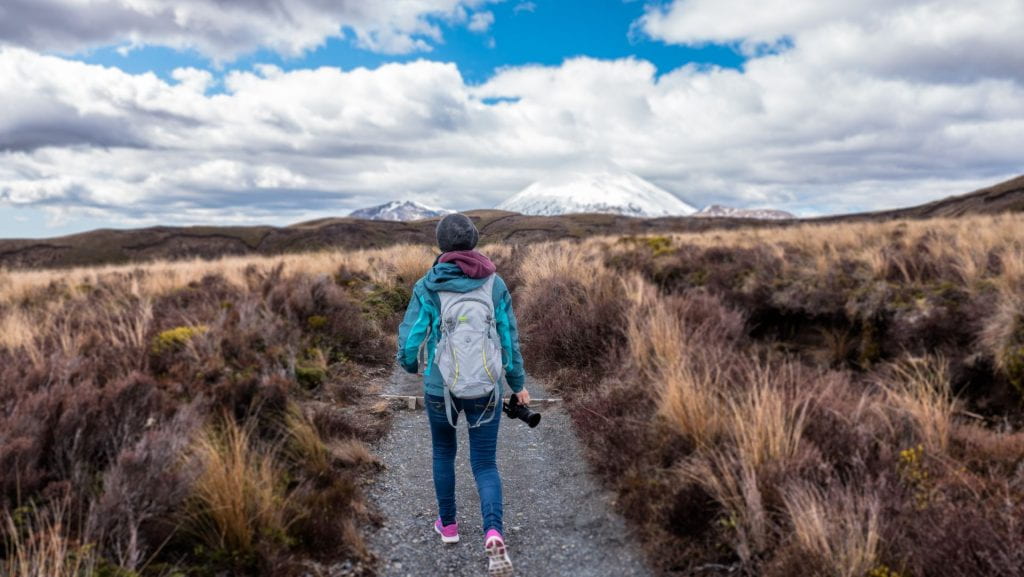Insights Into: Working In Travel Journalism
By skye.aitken, on 27 November 2019
Written by guest writers, Sophie Dening and Katie Bowman.
A common thing people write under ‘hobbies and interest’ on a CV is ‘travel’. But have you ever thought about turning this interest into a career? Sally Brown, UCL Careers Consultant, talked to two UCL alumni who have done just that.
Sophie Dening, Editor and journalist
UCL graduate: BA French Language and Literature (1997)
Sophie is a self-employed editor and journalist – for publications such as Condé Nast Britain, Gourmet Traveller, the Evening Standard and the Daily Telegraph. She is also the acting production editor at Lonely Planet magazine.
How did you get your job?
I applied for my job as production editor at Lonely Planet magazine via a jobs site. I had been on extended maternity leave following a long period as a freelance food and travel writer. It took me six months of applying for jobs before I got one, and I had to accept a drop in my salary.
What’s a typical day like?
I check emails and make sure I am up to date with where we’re at with all the pages of the magazine, as well as future issues and side projects, then divide my time between writing, editing and working in InDesign. I also manage another subeditor and a freelancer, and work on the flatplan and lead a weekly editorial meeting.
What do you enjoy about your role?
I enjoy working with words, I enjoy carrying out varied high-level administrative tasks, I appreciate working with a team and learning from them, and I enjoy regular hours and low stress.
What are the challenges?
Getting everything done in time, always – deadlines. Sheer volume of work.
How relevant is your degree to your current job?
Currently not particularly, more tangentially, in terms of working with texts. But as a freelancer I have worked as a translator for hotel brands, and worked extensively in Paris and France as a food and travel writer, where I have used my French language skills.
How has your role developed and what are your ambitions? My role here at Lonely Planet has been interesting as I have acted as a sort of workflow consultant as well as carrying out the usual tasks. It is a year-long contract covering someone else’s role. My ambition at present is to continue working for LP when I finish my contract, as a writer or project editor, and to find other regular freelance work that will fit in with my family commitments.
Any words of advice for someone wanting to get into this sector?
Try to get experience any which way you can: work on a student paper; write a blog; enter writing competitions, in order to populate your CV. And do try to enter a sector that will hold your interest for years to come; once you are established as any sort of specialist, it can be hard to move around within publishing. Advice for someone wanting specifically to become a production editor or chief sub in travel publishing? Get any subbing experience as you can and apply for junior subbing roles. You need to be really good at English, and be able to spot a spelling mistake – aka a typo, in the trade – at 20 paces. Read up on style (I recommend Butcher’s Copy-editing, Cambridge University Press). Travel writers and editors tend to be fairly well-travelled and may start to specialise (in terms of destinations) right from the start of their careers – rather than entering travel publishing in order to travel. You are bound to experience rejection in the publishing industry (don’t lose confidence – there are jobs out there!), and salaries have not gone up much recently. It can be tough being a freelancer, or advancing in a competitive sector. But it is an interesting industry, always changing, and full of great people and varied work.
Katie Bowman, Features Editor, The Sunday Times Travel Magazine
UCL graduate: English (1999)
Katie has worked in her current role for nearly 17 years, she has also worked as a sub-editor for Condé Nast International and Marie Claire Australia.
So, what does a features editor for a travel magazine do?
The Sunday Times Travel magazine is different from newspapers – it is on sale in stores competing with magazines such as Vogue. It is mainstream, glossier and I suppose more ‘glamorous’ than a newspaper travel section. My role is varied, from looking at how to make the front cover enticing to deciding what goes into the rest of the 164 pages of the magazine. The features have to be both inspirational and also realistic to sell well – ensuring well-timed ‘big hitters’ such as New York or Paris. Locations such as these can be revisited year after year, compared to a newspaper who might focus on recent events across the world such as bombings or natural disasters.
What is your role like on an average day?
My actual day to day activities involve commissioning freelancers, going through ideas pitched by more junior members of staff and perhaps travelling myself.
With regards to travelling, if this is a major focus for you then you might consider working as a freelance writer/journalist instead. The main advantages are that you have control over your schedule, where you go and can work around your other commitments such as family. Working on a magazine ‘in-house’ often means you are getting involved with the ‘nuts and bolts’ of the publication rather than the actual travelling. As the dynamic of teams vary from magazine to magazine, then it is essential that you find this out before applying – as you might find an in-house role will only allow you to travel sporadically if at all.
What do you enjoy about your role?
The change – I have been in this role for nearly 17 years, but the novelty still hasn’t worn off! This is because the world never stops feeling new – even a location that we have featured many times can change – such as a new restaurant or a new local event. Travelling is all I ever wanted to do – in fact, I would rather stay in travel (such as being a flight attendant) than journalism (such as working on a financial publication). I love planning trips, not just going on them!
What are the challenges?
The pay really – you won’t make much money if you want to work in this industry! Just doing freelancing alone also probably won’t allow you to pay your rent/mortgage. Most freelancers do other roles – such as copy writing or editing – alongside their freelance work.
How relevant was your degree to your current role?
My English degree is not directly relevant to my current role, but it was helpful in the past for me to secure internships. I was competing against people who were studying master’s degrees in journalism, so having the name ‘UCL’ was really helpful in getting opportunities.
Do you have any tips for current students wanting to get into this industry?
Do an internship with a well-known publication whilst you are living in cheaper student accommodation. We have interns who are forced to either spend a lot of money travelling into London or sleeping on friend’s floors in order to do the internship.
How would I find out about internship opportunities?
Our two-week programmes are always oversubscribed, but follow us on social media as we may have someone drop out – so we might ask for a replacement at short notice. Most internships are unadvertised, so choose a few publications and write a perky and engaging cover letter – remembering that you are not applying to a big corporate company, so don’t make it cold and impersonal: ensure you write to a named person rather than ‘Dear Sir or Madam’. In the letter, state clearly your availability – if you can only offer a couple of afternoons a week due to your course timetable that is fine.
What might make an application for an internship stand-out?
A clear level of maturity – so make sure your CV looks professional and highlights that skills that would make you useful in the workplace such as computer skills, languages and other office skills. Make the life of the person reading your application as easy as possible. If you already have a blog / website then write this on your application – it is useful for me to see your potential.
But the other important thing is to make the most out of the experience once you are there. Don’t have too high expectations of the internships – you won’t be writing big cover stories! You also might not always be doing the most exciting tasks – but grit your teeth and get on with it. Also, leaving early without a valid reason can give a really bad impression. Be proactive during the experience, approaching people with your ideas – ask them ‘What can I pitch?” or “Can I offer some ideas?”.
What would you look for when commissioning a freelancer?
Similar to other editors, I tend to work with freelancers I have worked with before – as I know I can trust that they will deliver. However, this does not mean I am not open to working with new people. Their initial pitch might be something I could use in a smaller story and I would be looking for something that is tailored to this magazine – which the freelancer has been clear about where it would ‘sit’. It is the responsibility of the freelancer to curate and build the stories – not to send the same pitch to 20 different magazines.
Any other tips for potential freelancers?
Be aware that you will receive very little feedback. But give the initial pitch the time it deserves and it will pay off in repeat commissions. After you have done an internship with a magazine, then offer to write for free ‘on spec’ pieces – this could be as simple as writing a piece about your recent holiday destination. You will then accumulate by-lines and build up a professional portfolio – you only need 2 or 3 well-known publication names – then pitch properly using your portfolio. It is not always enough just to have published in a university magazine – as they are not always well-edited. Having a well-known publication in your portfolio is invaluable.
 Close
Close



